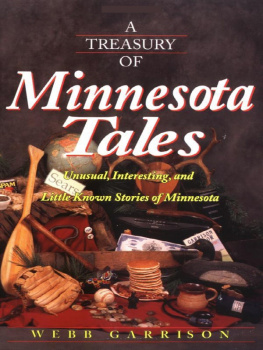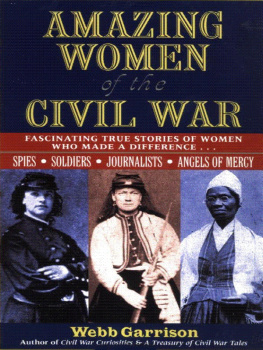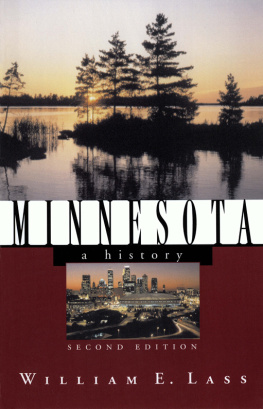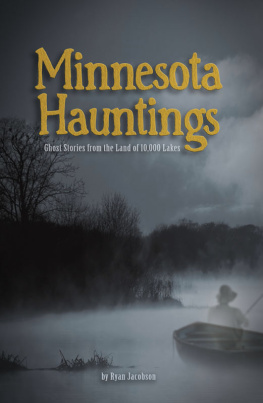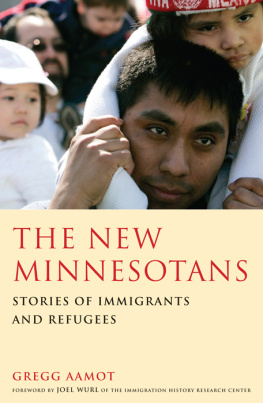
A Treasury of
Minnesota Tales
A Treasury of
Minnesota Tales
Webb Garrison

Copyright 1998 by Webb Garrison
All rights reserved. Written permission must be secured from the publisher to use or reproduce any part of this book, except for brief quotations in critical reviews and articles.
Published by Rutledge Hill Press, a division of Thomas Nelson, Inc.,
P.O. Box 141000, Nashville, Tennessee 37214.
Typography by E. T. Lowe, Nashville, Tennessee
Library of Congress Cataloging-in-Publication Data
Garrison, Webb B.
A treasury of Minnesota tales / Webb Garrison.
p. cm.
Includes bibliographical references and index.
ISBN 1 -55853-663-9 (pbk.)
1. MinnesotaAnecdotes. 2. MinnesotaBiographyAnecdotes.
I. Title
F606.6G37 1998
977.6dc21
98-49048 CIP
Printed in the United States of America.
02 03 04 05 06 6 5 4 3 2
Contents
28. Matchless Minnesota: Three Hundred Years of
First Events and Achievements
Introduction
Young and Diverse
As a political unit between Canada and Mexico, Minnesota is an adolescent. Massachusetts, Pennsylvania, and even Georgia are old-timers by comparison. Yet among the fifty states, Minnesota is close to the top in diversity.
The Native Americans who flourished there long before the arrival of the French explorers and British fur traders welcomed as visitors many other tribesmen of diverse backgrounds who made pilgrimages to the red pipestone quarries. Ownership of the territorys land and water moved back and forth among European nations many times before the region became a part of the United States through the Louisiana Purchase. Its multicultural history is still obvious today in the states population, which has been and remains as diverse in background as any in the nation.
Minnesotans have made the Land of Lakes notable for superlatives. Here is the foremost medical clinic of its sort in the world. Business and industrial enterprises that rank number one in their categories are flanked by the largest indoor shopping complex ever built.
Measured by some criteria, citizens of the state are the best read in the nation, some say because the long, cold winters give them many months in which to semihibernate with books and magazines and newspapers. (Thus this small volume should find a substantial audience!) It is in no sense comprehensive, as more than one hundred other subjects could have been treated. Many of them practically shouted, Take me! Take me!
Maybe because Minnesotans are so diverse, persons and events described in these pages range from the mythical, comical Paul Bunyan to a dead-serious president of the United States, the Western worlds most noted evangelist, and a Sioux leader whose reluctant leadership in war led to the biggest massacre of whites by Indians in U.S. history.
If youre a Minnesotan, whatever your geographical or ethnic or racial background may be, heres hoping youll find new sources of pride in these chapters about your state and a few of its people.
Part 1
Mavericks, Strays, and Zealots
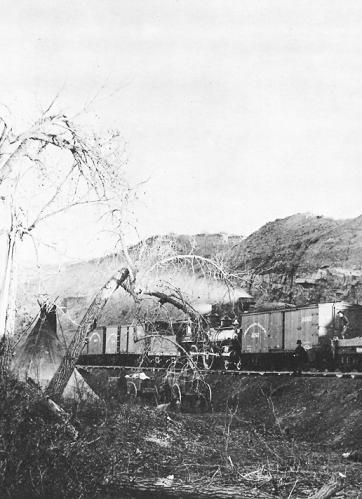
This photograph of a Northern Pacific express is labeled Advance of Civilization.
1
Jim Root
A Railroad Record
Air pollution was not considered a problem in Minnesota in 1894; the ever-present smoke from clearing fires was simply a nuisanceor a sign of progress. Settlers and loggers pouring into the areas immense virgin forests kept the clearing fires going for days on end as they got rid of trees and brush for which they had no use. On many dry days, smoke could be seen and smelled almost anywhere in the state.
Thats one reason citizens of the sawmill town of Hinckley paid little attention to the thick, blue haze they saw when they got up on the morning of September 1, 1894.
Promptly at seven oclock the whistle of the big Brennan Lumber Company, the largest employer in Pine County, blew to announce that another days work was starting. So much lumber went out that the remote town was linked with Saint Paul and Duluth by two competing railroads, the Eastern Minnesota, and the Saint Paul and Duluth Railroads.
At the Eastern Minnesota depot that morning a freight train that belonged to James J. Hills Great Northern system stood ready to depart with its cargo of green lumber. Later in the day passenger trains would come both to this station and to that of the Saint Paul and Duluth Railroad. How important this transportation would soon become, no one dreamed during the midmorning hours.
Soon the blue-gray haze became so thick that payroll clerks at the sawmill had to light kerosene lamps. A sudden burst of wind-whipped flames from an old logging road sent sparks into the outskirts of the town. During the morning the volunteer fire department responded to half a dozen calls, each to a different site, but the firefighters had no difficulty bringing the blazes under control.
Shortly after 1:00 P.M., however, the situation took a dramatic turn. A telegraph message from the south reported that nearby Pokegama was burning furiously and the town could not be saved. To a few observers, it seemed that the grayish clouds of smoke turned black in a matter of minutes.
Father Lawler, the only Catholic priest in the logging town, decided to take matters in his own hands. Waving his arms, he ran up and down the principal streets shouting in his deep, bass voice, Forest fire! Run! Everybody run!
Many struck out for the shallow Grindstone River at the edge of town. Others headed for a huge three-acre gravel pit that always held stagnant muddy water. At least seventy-five people hurried to the Eastern Minnesota Railroad station, where passenger train No. 4 was waiting along with freight train No. 23. With William Best at the throttle of engine No. 125 and fireman George Ford throwing coal into the boiler, the passenger train coupled with the freight, and refugees began crowding into the thirty empty boxcars ready to be rolled south behind the engine controlled by Best. No one knows how many Hinckley residents were aboard when the train pulled out, but the number may have exceeded six hundred.
As the last passengers crawled aboard, paint on both freight and passenger cars began to blister. Just as the now-lengthy train crossed the bridge over the Grindstone River, the structures creosote-soaked timbers burst into flame. Best didnt dare stop, but he did slow down enough to enable some runners to jump aboard. Minutes later the hybrid train roared into Sandstone village, eight miles from Hinckley, with the boxcar refugees shouting out the news that Pokegama has gone up in smoke, and Hinckley will be next.
Offered places on the already crowded train, the Sandstone residents and their families declined. They had lived through so many warnings of forest fires that they were in no mood to run. Not a man, woman, or child joined the refugees at Sandstone, so after a brief pause the motley train moved forward again. Twenty minutes later fire leveled every structure in Sandstone.
Meanwhile, back in Hinckley, those who had run to the Grindstone found that the river water was too shallow to give protection except in occasional pools. At the gravel pit the situation was much worse, as the water covering its bottom was seldom more than four inches deep.
Next page
